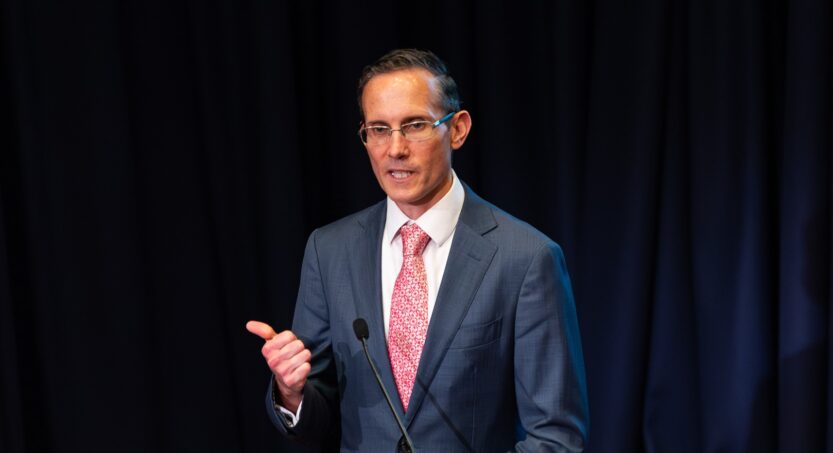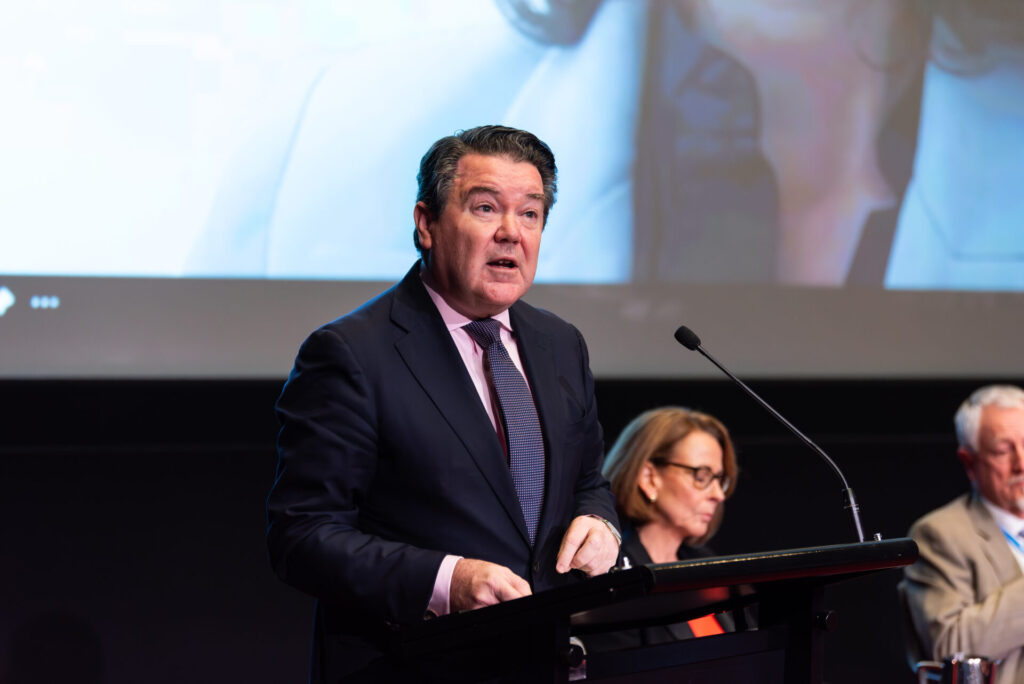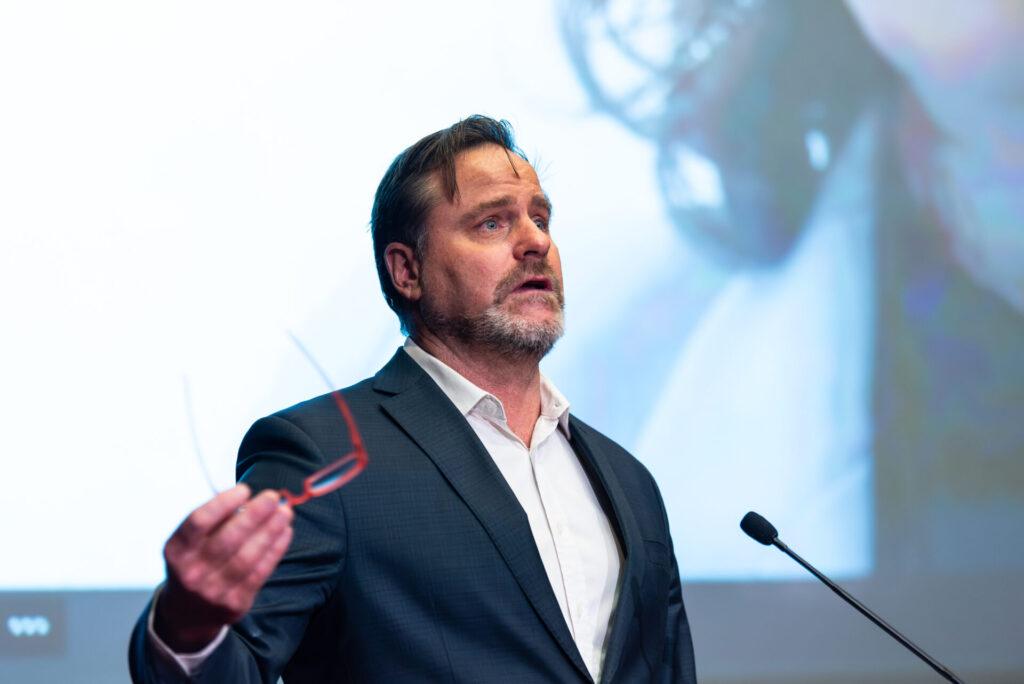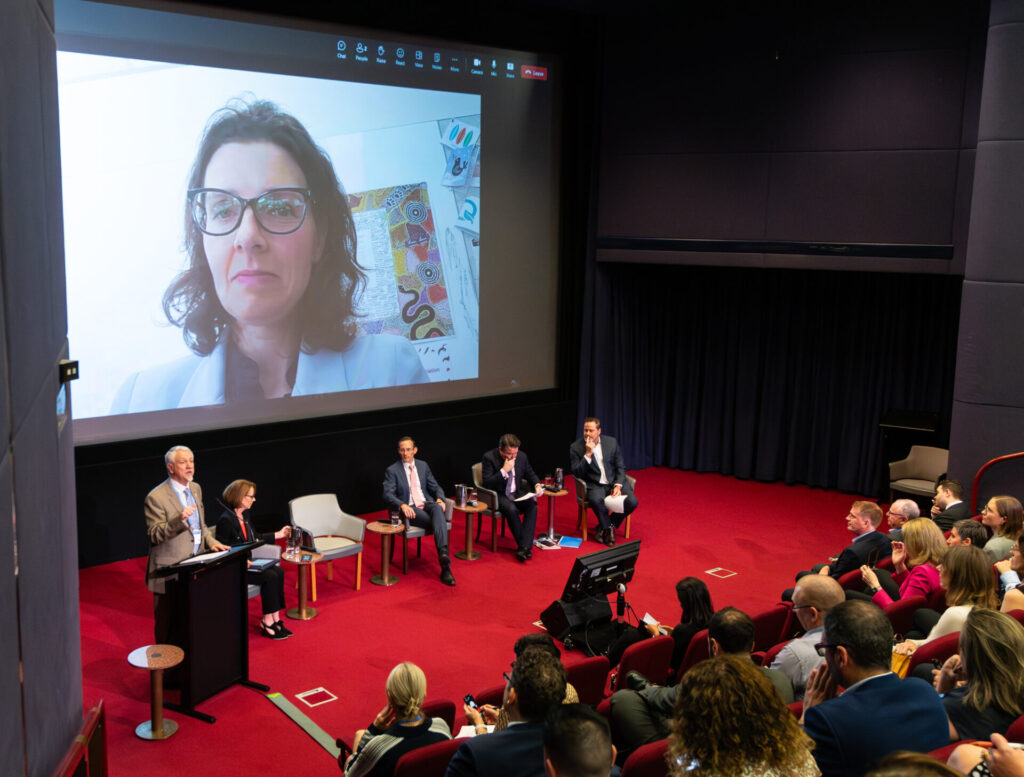What do politicians from across the board make of double giving?

The overwhelming feeling at this week’s Philanthropy Meets Parliament Summit in Canberra was that the Australian philanthropic sector stands at an unprecedented moment of opportunity. It comes after the Albanese government (when in opposition in 2022) adopted a policy to work to double giving by the community to charity by 2030. A positive and effective working relationship with parliament across the board is important to achieve this. So what reforms will parliamentarians from across the political spectrum support in relation to doubling giving?
In this session, the audience heard from politicians across the board about giving reforms they would support. Introduced by Philanthropy Australia’s CEO Jack Heath, he highlighted that Australians were a generous people, ranking highly on the Gallop global giving index although not in terms of GDP. He said that a national giving campaign would help Australia become one of the most generous nations in the world – and that expanding and strengthening Australian community foundations had the potential to create an historic transformation of our social infrastructure.
Here’s a summary of the view on double giving across parliament.
The Hon Dr Andrew Leigh MP, Assistant Minister for Competition, Charities and Treasury
Dr Leigh (pictured above) said his philosophy on giving is that it must be grounded in ‘three Es’ – enthusiasm, ease and evidence. Enthusiasm meant that donating to a good cause should always be fun and not done in obligation. He relayed a story about radomised trials that showed giving made us happier and was beneficial to our health. Ease is about making it easier to give and Dr Leigh said he has an “open mind” on proposals to reform super to allow direct bequests.
The minister echoed Kristina Keneally’s assertion earlier in the day that while we work to double giving, we must also focus on doubling, tripling or quadrupling impact with those funds. “The work that charity raters such as givewell.org internationally and Charity Navigator in the United States have done is critical to ensuring that we’re raising the evidence bar. The Australian Centre for Evaluation is conducting rigorous evaluations, including randomised trials across the Federal Government, but we’re keen to use their expertise to partner with the community sector. So, I’d urge those and foundations to make sure that you are assigning resources in a way that builds the evidence base. I’d encourage those who are setting up programs to think about how you can build a rigorous evaluation around your program, so it’s teaching others what works and what doesn’t.
“Those three Es, enthusiasm, ease and evidence, in our view, should underpin the goal of doubling philanthropy, and can also be part of ensuring that boosted philanthropy forms a key role in the social mission to build a more connected Australia,” he said.
Coalition Senator Dean Smith, Shadow Assistant Minister for Competition, Charities and Treasury
Senator Smith spoke extensively about the cost of living crisis, the pressure of interest rate rises and how many people are doing it tough who have never done so before. He quoted the latest Foodbank Hunger Report, citing that 3.7 million households experienced food insecurity in the last year, up 383,000 from 2022. The mission to double philanthropic giving by 2030 to build community strength and to cement a culture of giving in the country was now “more important than ever”, he said. “Doubling giving by 2030 is of ever-increasing importance if our charities and not-for-profits are to meet demand into the future, but also I hope to grow and to thrive.”

The senator said he supported the Productivity Commission into Philanthropy and what it aims to achieve, noting Australia’s giving lagged behind our international contemporaries, and that “the harsh reality for many generous Australians is that giving is harder than it has been for a very long time”. He observed super bequests as a key suggestion and said that considering better later-in-life and legacy giving is a foundational consideration of how best to encourage and reward giving by those Australians fortunate enough to have amassed significant wealth.
“Like the sector, we eagerly await both the final work of the Productivity Commission and more importantly, the new legislative and regulatory landscape that it creates,” he said. He finished by paying tribute to the commitment of people at the “coalface of Australians charities and all those who sustain them. Our philanthropic community continues to shape our country in the best possible image of ourselves,” he said.
Peter Whish-Wilson, Greens Senator for Iutruwita/Tasmania
Senator Whish-Wilson began by acknowledging Dr Leigh’s work so far in establishing the Productivity Commission and working with states and territories to harmonise fundraising laws. He said that charities play a crucial role in advocacy and service delivery and had faced a decade of cuts. He said he shared concerns around anti-protest laws and that the Greens would continue to campaign against them. “I raise that today because obviously my party represents a very large movement, the environmental movement, and much of the funds for that across the board come from philanthropy. The advocacy work they do is very, very important, especially with the climate challenges we face. We know that philanthropy and the charity sector are often the people closest to the issues and have the deepest understanding of the problem,” he said.

He added that the Greens supported legislation that strengthened the rights of charities and the philanthropic sector. “That could include legislating funding commitments so that organisations and people working in frontline roles aren’t at the whim of change in our political winds. That could include legislating rights to protect advocacy so that a future government can’t insert gag clauses every time a new funding cycle rolls over. Crucially, we think we need a charter of rights to protect the right to protest. That matters for charities and for civil society and communities across this country.” He added that he would like to see more done for organisations to meaningfully access the DGR space, and that it was critical to reduce the need in community through creating more housing and income support, mental health services and action on climate change. The Greens would “continue to advocate for reforms that strengthen the critical work that this sector does,” he said.
Allegra Spender MP, Independent Member for Wentworth
Allegra Spender began by adding to Dr Leigh’s three Es, echoing the importance of ease and adding a C and D – for connectedness and making a difference. She said that having run a charity herself in the past and been involved in setting up a private ancillary foundation (PAF), she understands some of the issues involved and that the “philanthropic sector is absolutely critical to this country”. “We need to make it easy for philanthropy, but also for our charities to succeed. If we can do that, if we can connect ourselves to charitable giving and we can ensure that all our giving makes a difference, then we really can achieve what you are seeking, which is to grow philanthropy to make a massive difference in this country,” she said.

She applauded the work that Philanthropy Australia has done, adding that the reforms being put forward, particularly super bequests, expanding and simplifying DGR status, along with “fixing fundraising” speak to the ease and connectedness that’s needed. “People give because they are at some level connected to a concern or others they want to help. The more that we can build that connectedness, the greater we can build philanthropy, so I very much support the idea of making it easier and stronger to build Australian community foundations.”
She said that she would like to add some reforms to the agenda to make it easier for charities to make a difference. “People will give more money the more difference they believe charities make.” She said that government could share more of the data it owns with charities that would help them make a stronger case for the impact they are creating; secondly, that government could make it easier for charities to engage with it and aim to become a “best in class grant-maker”, giving more effective feedback and creating a process that requires less time and resources on already stretched not-for-profits.
Philanthropy Australia thanks the parliamentarians and their parties for their involvement in the Philanthropy Meets Parliament Summit 2023.